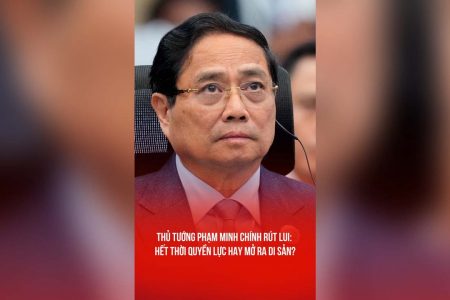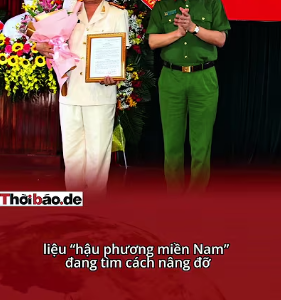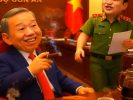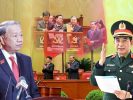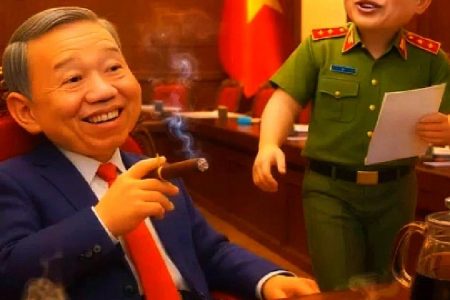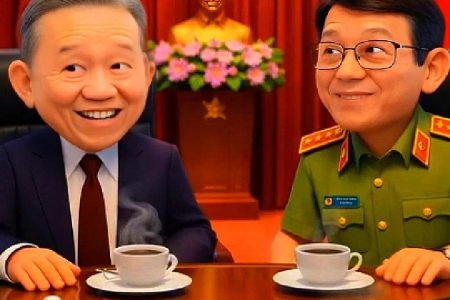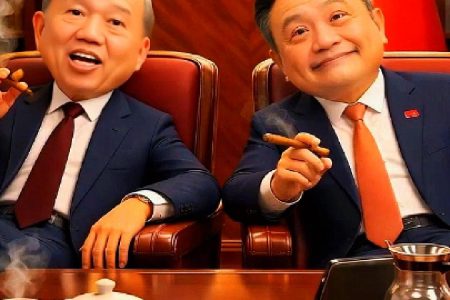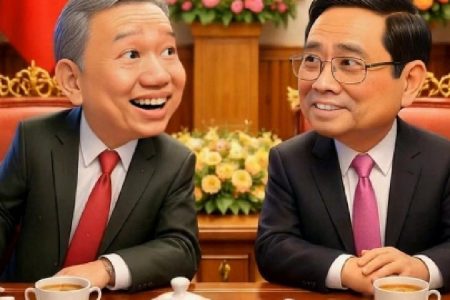
Myanmar politics reversed and its relationship with China
After the coupon February 1, the Myanmar army took complete control of the country. This is quite a surprise event for all the world.
In fact, the allegations of „election fraud“ seem to be just an excuse for the Myanmar military to carry out the political upheaval. However, the most important thing that is most concerned by world public opinion today is that China’s move, especially Chinese Foreign Minister Wang Yi’s visit to Myanmar in January, may have become the important driving force for this coup.
Despite Western protests, China still blocked a UN Security Council resolution under the pretext of „not interfering in the internal affairs“ of another country. The Chinese media claimed that the coup was only an important „cabinet reform“ of Myanmar.
On the public front, the commander-in-chief of the armed forces of Myanmar has accused the November 2020 election in Myanmar of „fraudulent.“ But the Myanmar military will not be able to confidently carry out the political reform without being ensured that China will protect them from sanctions and condemnation resolutions of the United Nations Security Council (UN Security Council), which are being proposed by the West. They understand that China – the economy No. 2 in the world – can compensate them for the damage the above sanctions cause. There must have been some discussion that led Myanmar military officials to believe that China was ready to take sides with Myanmar.
Although, the Chinese government appears to have had a fairly close relationship with the democratic forces of Aung San Suu Kyi – Myanmar’s State Counselor – rather than with the Myanmar military. In fact, the Myanmar military does not support the policy of external dependence and chooses the path of international isolation. It took Myanmar’s military 10 years to adapt to democracy and the halt of major projects, attributed to fears that Myanmar would heavily depend on China. However, it is possible that China has now received a commitment from the head of the Myanmar armed forces to strengthen economic cooperation between the two countries, so Beijing will „accept“ for the Myanmar army to do the coup this time. Later, if the dam project „contracted“ by China is still underway despite popular objections, it will be a sign that Myanmar has shifted its focus to China.
There is no evidence that China has „advised“ the head of the Myanmar armed forces to proceed with political action. However, it is possible that the Myanmar military believes it has „got“ China on its side and has received help. China seldom misses out on opportunities to expand its influence in Asia, especially those with a certain American influence base. Therefore, if the US and its allies try to impose sanctions on Myanmar, China will play a leading role in the region and intervene in the situation to protect its interests.
Beijing is currently promoting a large-scale „economic corridor“ within the framework of the „Silk Road“ which includes a gas pipeline and an oil pipeline connecting Yunnan to a deep-water port in the Bay of Bengal. These important works help bring oil and gas to China without going through the Strait of Malacca which is a key point in the transportation of oil from many parts of the world to China. However, the Strait of Malacca can be „locked up“ by the US and the West, so China is always looking for a way out of dependence on this Malacca route.
The anti-China wave flared up
The coup in Myanmar will have a lot of impact on Southeast Asia. First of all, the coup pushes the region into a democratic „recession“ at a time when countries like the Philippines, Cambodia, Indonesia and Thailand are also stepping backward on the path of democratization. The situation in Myanmar will make Southeast Asia more volatile. First, it will create a new wave of immigration to neighboring countries. Second, the rebels of ethnic minorities will take advantage of the situation to step up military campaigns and break the ceasefire agreements.
Although the army holds the government through the „gun,“ the country, which has a tradition of indomitable struggle, does not want to return to the former militaristic era. Protests against the coup were taking place more and more in Myanmar.
Recently, the protests against a military coup in Myanmar have turned to an anti-China sentiment. Crowds gathered outside the Chinese Embassy in Yangon and called for a boycott of the country’s goods and services. Information was circulating, including rumors that Chinese soldiers had infiltrated Myanmar and Chinese software would be used to set up the „Great Firewall.“ The Chinese ambassador to Myanmar is trying to refute these rumors but get not much success.
The anti-China tide has long existed in Myanmar, both at the national and local level, due to conflicts between ethnic Chinese communities and other communities. Chinese investment projects have been important highlights, especially the Myitsone Dam project (which was suspended in 2011 after the democratic process took place). However, local people repeatedly condemn the forced relocation and the environmental impacts associated with these projects. On the contrary, Beijing has always wanted to re-start investment projects that have been delayed.
In fact, anti-China waves are also rising across Southeast Asia. Lots of young people see parallels between the 2019 Hong Kong rally and their resistance to China’s authoritarian regime. This has created the so-called Milk Tea Alliance of the online activists. It is China’s authoritarianism and the dissatisfaction of the people of other countries towards the external aggressor that has helped to strengthen the unity of the anti-dictatorial movements. However, the danger behind these anti-authoritarian movements is the willingness of the domestic rulers and the super-rich to surrender to China for personal gain.
Vietnamese story
All of these issues have a significant impact on Vietnam. In recent times, the Vietnamese government has increased its concentration on arresting and persecuting dissidents, even peasants. With the backwardness of the democracy movement in Southeast Asia, the Vietnamese government seems to be being encouraged for its authoritarian ruling. There have been many voices calling for if the Vietnamese government wants to get rid of dependence on China, then Vietnam needs to follow the path of democratization. Democratization can limit and fight corruption, while at the same time gaining strength from the people. But it seems that the Vietnamese government has ignored all such calls.
Many people expressed dissatisfaction with the fact that Vietnamese leaders were only worried about fighting for important positions for personal gain, without worrying about the fate or safety of the country or the nation. The 13th National Congress of the ruling Communist Party of Vietnam is over, but it seems that those who hold the positions of „Four Pillars“ are still unknown with exception of the General Secretary. This is explained as the factions have not yet come to compromise with each other on these positions.
In addition, the „giants“ hold a lot of the country’s resources, with the backing of high-ranking officials. The public opinion in Hanoi said that Trinh Van Quyet’s FLC group had „backing“ from China. This group is engaged in multi-industry and multi-field business, including the civil aviation industry. In the south, many people are not strange that most of the „golden lands“ located in the central area of Saigon are acquired by Truong My Lan’s Van Thinh Phat real estate company. The problem is where does Truong My Lan get such a large amount of money to be able to buy such a series of „huge“ real estate? Not to mention the acquisition of „golden land“ by Mrs. Lan with the great support of „Godfather“ Le Thanh Hai – former Secretary of the Ho Chi Minh City Party Committee.
Such complex implicit relationships between „giants“ and political „fathers“ make Vietnamese politics very vulnerable to being greatly influenced by „foreign forces.“ And if there is a confrontation with China, it is these „giants“ and „godfather“ that will be the first force that wants to „surrender“ to China to keep their personal interests.
And so, instability from Myanmar could also be the future of Vietnam if the Vietnamese government does not bring the country’s politics to democratization.
Thoibao.de (Translated)
Source: https://www.rfa.org/vietnamese/news/blog/coup-in-myanmar-and-effects-in-vn-02262021103129.html



